In a new blog post, Brad Wilcox and Nicholas Wolfinger ask, “are red or blue spouses happier?” Their answer—suspense—is red.
Using the 2010-14 General Social Survey, they start with this descriptive figure:
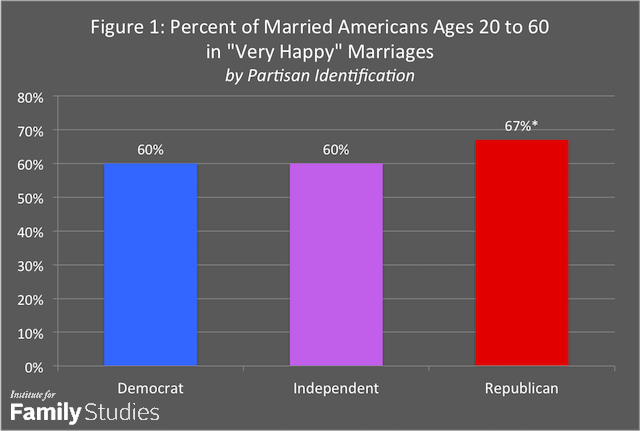
Then they do adjustments, and show how their statistical controls explain the “Republican advantage in marital satisfaction.” And get this:
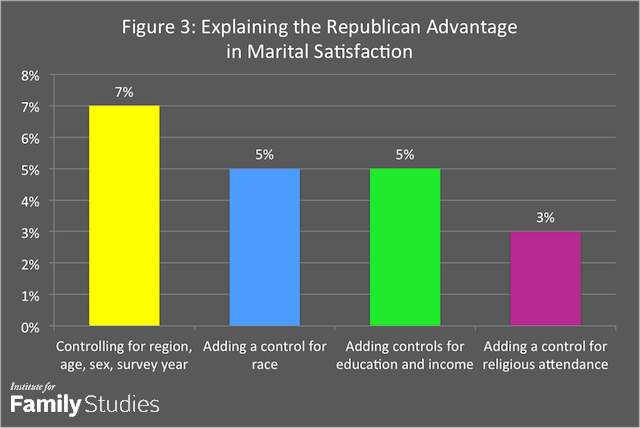
So, with all those controls, the “Republican advantage” remains.
That was enough for the sadly credulous David Leonhardt, editor of the New York Times Upshot site, to conclude:
Liberal attitudes toward gender equality, sexual orientation and education all seem to foster stronger, more stable family lives. But Mr. Wilcox’s recent writings strike me as significant because they’re a reminder that conservatism also has values and cultural attitudes — about the importance of marriage and family life — that seem to improve the environment in which children grow up.
Quite a conclusion to draw from a three percent net difference in a question on marital happiness—not exactly the best measure of “the environment in which children grow up.” But more importantly, I think it’s empirically wrong anyway.
Wilcox and Wolfinger left out all the details of their analysis, but it was easy to replicate it pretty closely. As a left-versus-right story it just doesn’t hold up. The GSS allows people to specify eight party identifications (including “other party”), not just three (Democrat, Republican, Independent). Wilcox and Wolfinger code those as “Independent, near Democrat/Republican” as identifying with the parties, but they don’t show the whole pattern:
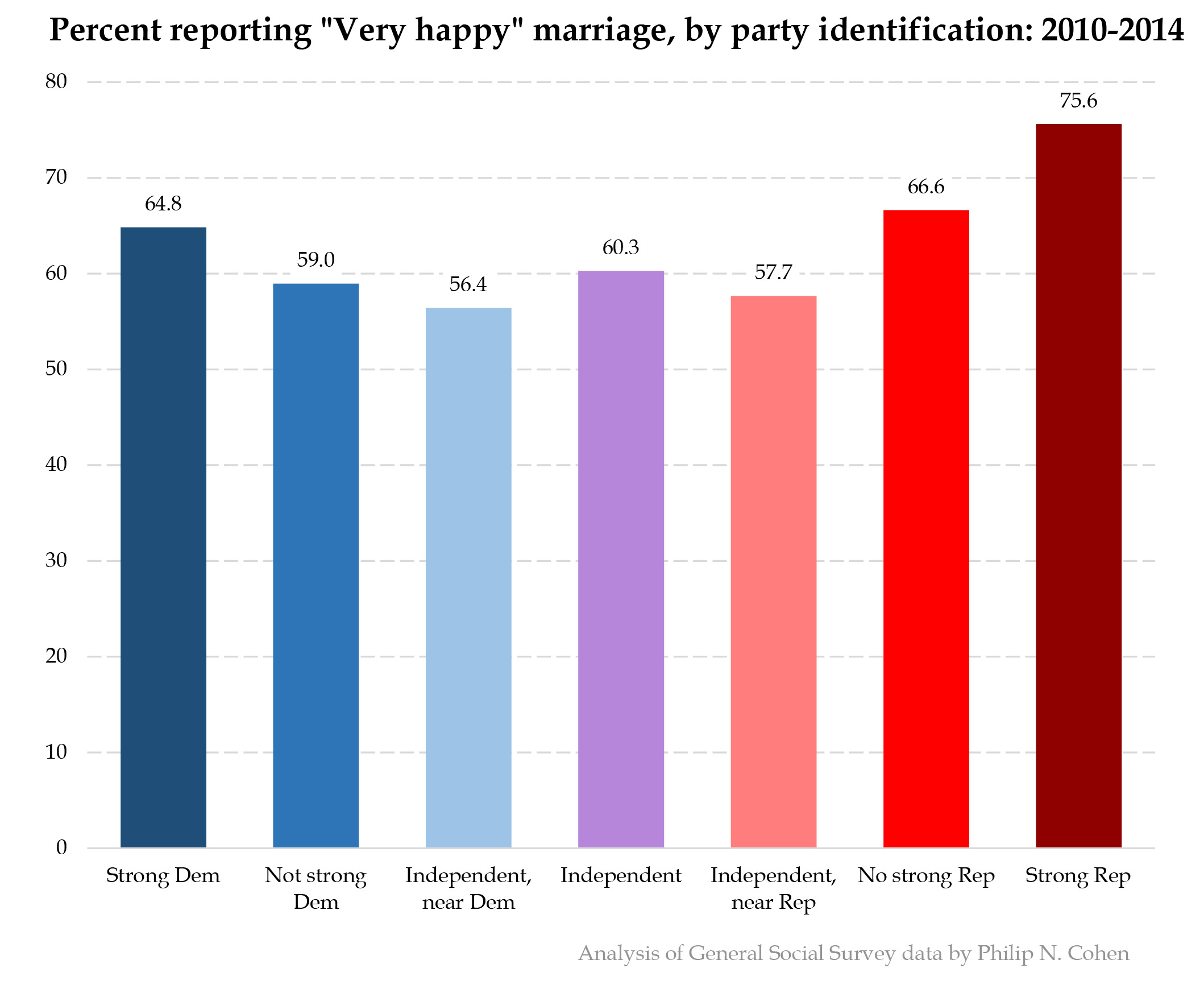
The upward slope toward “strong Democrats” undermines the left-right story. Still, the figure skews right. When I apply the statistical controls, however, the differences are muted:
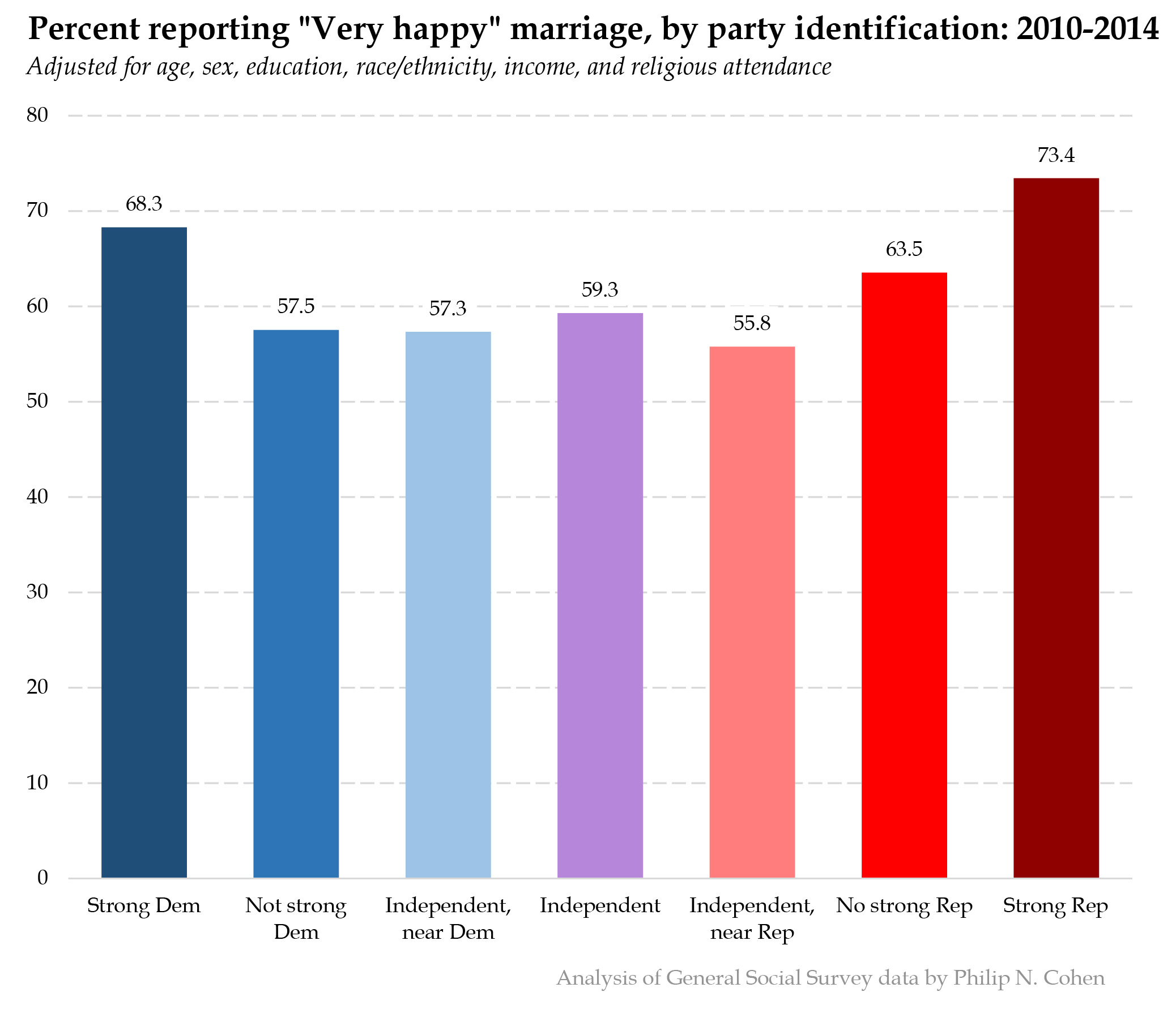
Now the “strong Democrats” appear happier than all but the “strong Republicans.” And not even the “strong Republicans” are significantly more likely to say they’re “very happy” in marriage than the “strong Democrats.” Here’s the relevant part of the table:
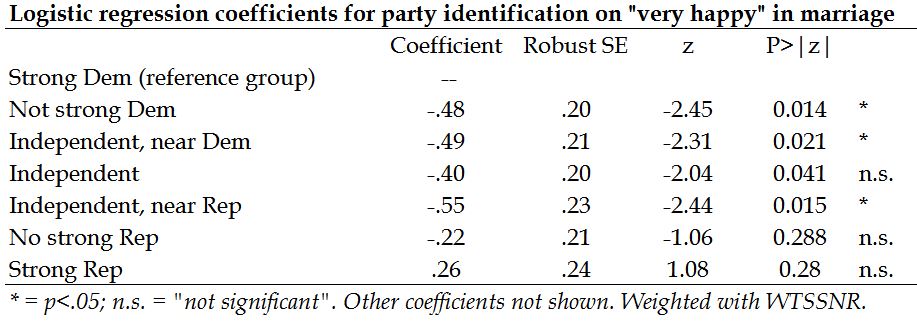
Lots of ways you could interpret this. But I’m pretty sure the Wilcox and Wolfinger conclusion is not supported: “married Republicans are more likely than married Democrats to say they are in very happy marriages.” And the Leonhardt conclusion is just ridiculous (insofar as it’s based on these data).
This post originally appeared on Sociological Images, a Pacific Standard partner site, as “That Thing About Republican Marriages Being Happier? It Isn’t True.”





